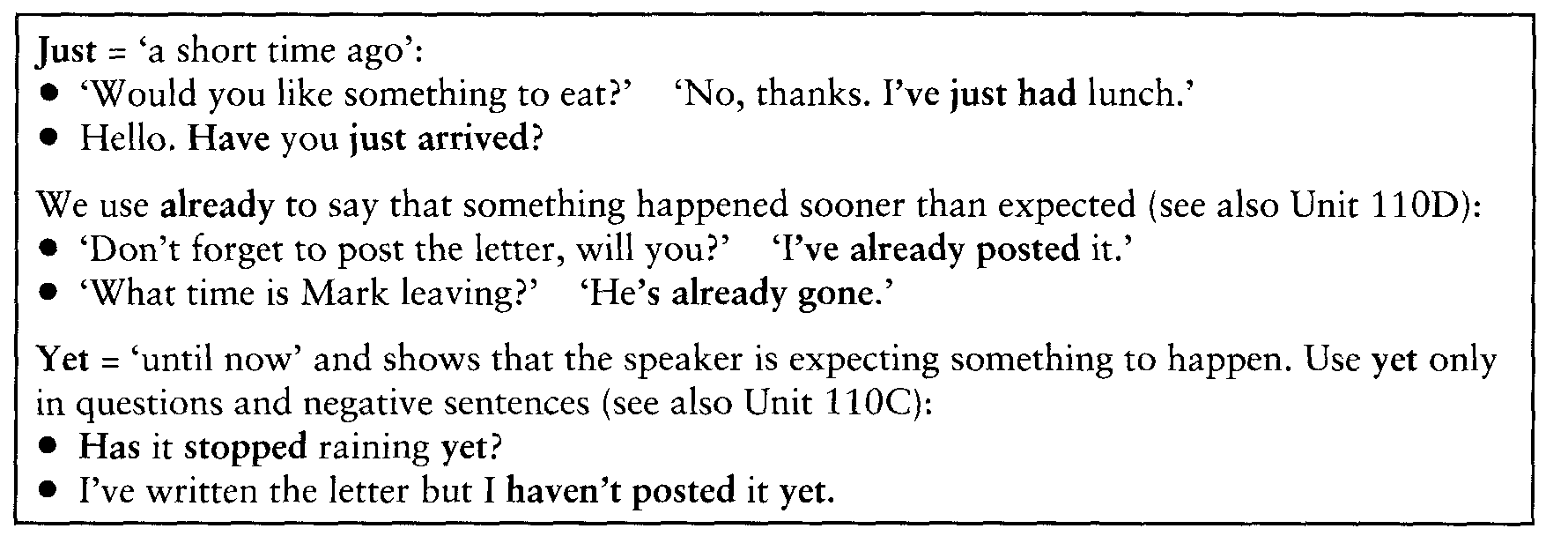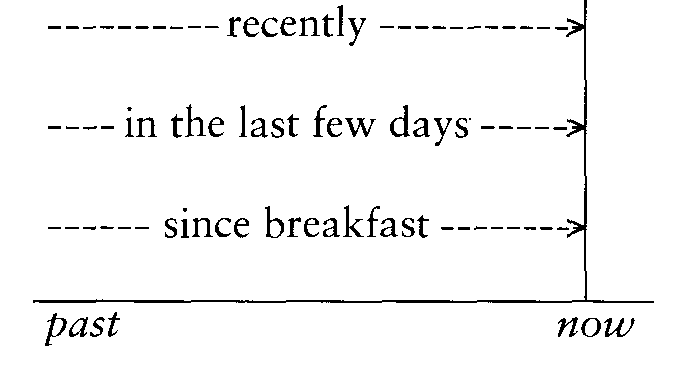
Сынып: 10
Сабақ №7
Сабақтың тақырыбы: Грамматика: Present perfect tense
Сабақтың мақсаты:1.Білімділік
Eтістіктің шағының сөйлемде дұрыс пайдалануын үйрету.
2.Дамытушылық
Есте сақтау, ойлау, оқу және жазу қабілеттерін дамыту.
3.Тәрбиелік
Тілді құрметтеуге, туған жерді сүюге, бәсекеге қабілетті
шығармашыл тұлға қалыптастыру, салауатты өмір
салтын ұстануына, ұқыптылып пен жинақылыққа
тәрбиелеу.
Сабақтың типі: жаңа білім беру
Сабақтың түрі: танымдық
Сабақтың әдісі: түсіндірмелі
Сабақтың көрнекілігі: электронды оқулық, оқулық, түрлі-түсті суреттер.
Болжамданған нәтиже: Ізденімпаз,ағылшын тілін терең меңгерген тұлға
қалыптастыру.
Пәнаралық байланыс: қазақ тілі.
Сабақ жоспары
1.Ұйымдастыру кезеңі
2.Үй тапсырмасын тексеру
3.Жаңа сабақ
4.Сабақты бекіту
5.Сабақты қорытындылау, бағалау
6.Үй тапсырмасын беру
Сабақтың барысы
1.Ұйымдастыру кезеңі
а) greeting and report
- Good morning, pupils!
- How are you?
- Who is on duty today?
- Who is absent?
- What day is it today?
- What is the weather like today?
- What season is it now?
b)warm up
“If you can keep your head when all about you,
Are losing theirs and blaming it on you”.
2.Үй тапсырмасын тексеру
Your home-task for the lesson was exercise 9 at page number 19. Are the statements true (T) or false (F)? Compare your answer with others.
1. People travel countries to be more educated. T F
2. Visiting museums is a way to have a realistic picture of a country. T F
3. A tourist is an interesting place to visit. T F
4. Astana is a beautiful city T F
5. While traveling you can find some things about yourself. T F
6. You ca get the same information by traveling or reading. T F
3.Жаңа сабақ
Present perfect (I have done)
A Study this example situation:

The present perfect simple is have/has + past participle. The past participle often ends in -ed (finished/decided etc.), but many important verbs are irregular (lost/done/been/written etc.).
B When we use the present perfect there is always a connection with now. The action in the past has a result now:
• 'Where's your key?' 'I don't know. I've lost it.' (I haven't got it now)
• He told me his name but I've forgotten it. (I can't remember it now)
• 'Is Sally here?' 'No, she's gone out.' (she is out now)
• I can't find my bag. Have you seen it? (do you know where it is now?)
We often use the present perfect to give new information or to announce a recent happening:
• Ow! I've cut my finger.
• The road is closed. There's been (= there has been) an accident.
• (from the news) The police have arrested two men in connection with the robbery.
C You can use the present perfect with just, already and yet:

D Note the difference between gone (to) and been (to):
• Jim is away on holiday. He has gone to Spain. (= he is there now or on his way there)
• Jane is back home from holiday now. She has been to Italy. (= she has now come back from Italy)
4.Сабақты бекіту
Doing exercises.
Activity 1. You are writing a letter to a friend. In the letter you give news about yourself and other people. Use the words given to make sentences. Use the present perfect.
Dear Chris,
Lots of things have happened since I last wrote to you.
1 I / buy / a new car …………………………………………………………………………………………...
2 my father / start / a new job ............................................................................................................................
3 I/give up / smoking ..........................................................................................................................................
4 Charles and Sarah /go/to Brazil..................................................................................................................
5 Suzanne / have / a baby ....................................................................................................................................
Activity 2. Read the situations and write sentences. Choose one of the following:
arrive break go up grow improve lose
1 Mike is looking for his key. He can't find it. ..………………………………………………………...
2 Margaret can't walk and her leg is in plaster. She ...................................................................................
3 Maria's English wasn't very good. Now it is much better....................................................................
4 Tim didn't have a beard last month. Now he has a beard....................................................................
5 This morning I was expecting a letter. Now I have it. ...........................................................................
6 Last week the bus fare was 80 pence. Now it is 90. ...............................................................................
Activity 3.

5.Сабақты қорытындылау, бағалау
• Have you ever eaten caviar? (in your life)
• We've never had a car.
• 'Have you read Hamlet?' 'No, I haven't read any of Shakespeare's plays.'
• Susan really loves that film. She's seen it eight times!
• What a boring film! It's the most boring film I've ever seen.
I n the following
examples too the speakers are talking about a period that continues
until now (recently / in the last few
days / so far /
n the following
examples too the speakers are talking about a period that continues
until now (recently / in the last few
days / so far /
since breakfast etc.):
• Have you heard from George recently?
• I've met a lot of people in the last few days.
• Everything is going well. We haven't had any problems so far.
• I'm hungry. I haven't eaten anything since breakfast. (= from breakfast until now)
• It's nice to see you again. We haven't seen each other for a long time.
Then I mark them.
6. Үй тапсырмасын беру
Your home-task for the next lesson is exercise 13 at page number 21. Complete the questions.
The lesson is over. Good-bye!
жүктеу мүмкіндігіне ие боласыз
Бұл материал сайт қолданушысы жариялаған. Материалдың ішінде жазылған барлық ақпаратқа жауапкершілікті жариялаған қолданушы жауап береді. Ұстаз тілегі тек ақпаратты таратуға қолдау көрсетеді. Егер материал сіздің авторлық құқығыңызды бұзған болса немесе басқа да себептермен сайттан өшіру керек деп ойласаңыз осында жазыңыз
Грамматика Present Perfect Tense
Грамматика Present Perfect Tense
Сынып: 10
Сабақ №7
Сабақтың тақырыбы: Грамматика: Present perfect tense
Сабақтың мақсаты:1.Білімділік
Eтістіктің шағының сөйлемде дұрыс пайдалануын үйрету.
2.Дамытушылық
Есте сақтау, ойлау, оқу және жазу қабілеттерін дамыту.
3.Тәрбиелік
Тілді құрметтеуге, туған жерді сүюге, бәсекеге қабілетті
шығармашыл тұлға қалыптастыру, салауатты өмір
салтын ұстануына, ұқыптылып пен жинақылыққа
тәрбиелеу.
Сабақтың типі: жаңа білім беру
Сабақтың түрі: танымдық
Сабақтың әдісі: түсіндірмелі
Сабақтың көрнекілігі: электронды оқулық, оқулық, түрлі-түсті суреттер.
Болжамданған нәтиже: Ізденімпаз,ағылшын тілін терең меңгерген тұлға
қалыптастыру.
Пәнаралық байланыс: қазақ тілі.
Сабақ жоспары
1.Ұйымдастыру кезеңі
2.Үй тапсырмасын тексеру
3.Жаңа сабақ
4.Сабақты бекіту
5.Сабақты қорытындылау, бағалау
6.Үй тапсырмасын беру
Сабақтың барысы
1.Ұйымдастыру кезеңі
а) greeting and report
- Good morning, pupils!
- How are you?
- Who is on duty today?
- Who is absent?
- What day is it today?
- What is the weather like today?
- What season is it now?
b)warm up
“If you can keep your head when all about you,
Are losing theirs and blaming it on you”.
2.Үй тапсырмасын тексеру
Your home-task for the lesson was exercise 9 at page number 19. Are the statements true (T) or false (F)? Compare your answer with others.
1. People travel countries to be more educated. T F
2. Visiting museums is a way to have a realistic picture of a country. T F
3. A tourist is an interesting place to visit. T F
4. Astana is a beautiful city T F
5. While traveling you can find some things about yourself. T F
6. You ca get the same information by traveling or reading. T F
3.Жаңа сабақ
Present perfect (I have done)
A Study this example situation:

The present perfect simple is have/has + past participle. The past participle often ends in -ed (finished/decided etc.), but many important verbs are irregular (lost/done/been/written etc.).
B When we use the present perfect there is always a connection with now. The action in the past has a result now:
• 'Where's your key?' 'I don't know. I've lost it.' (I haven't got it now)
• He told me his name but I've forgotten it. (I can't remember it now)
• 'Is Sally here?' 'No, she's gone out.' (she is out now)
• I can't find my bag. Have you seen it? (do you know where it is now?)
We often use the present perfect to give new information or to announce a recent happening:
• Ow! I've cut my finger.
• The road is closed. There's been (= there has been) an accident.
• (from the news) The police have arrested two men in connection with the robbery.
C You can use the present perfect with just, already and yet:

D Note the difference between gone (to) and been (to):
• Jim is away on holiday. He has gone to Spain. (= he is there now or on his way there)
• Jane is back home from holiday now. She has been to Italy. (= she has now come back from Italy)
4.Сабақты бекіту
Doing exercises.
Activity 1. You are writing a letter to a friend. In the letter you give news about yourself and other people. Use the words given to make sentences. Use the present perfect.
Dear Chris,
Lots of things have happened since I last wrote to you.
1 I / buy / a new car …………………………………………………………………………………………...
2 my father / start / a new job ............................................................................................................................
3 I/give up / smoking ..........................................................................................................................................
4 Charles and Sarah /go/to Brazil..................................................................................................................
5 Suzanne / have / a baby ....................................................................................................................................
Activity 2. Read the situations and write sentences. Choose one of the following:
arrive break go up grow improve lose
1 Mike is looking for his key. He can't find it. ..………………………………………………………...
2 Margaret can't walk and her leg is in plaster. She ...................................................................................
3 Maria's English wasn't very good. Now it is much better....................................................................
4 Tim didn't have a beard last month. Now he has a beard....................................................................
5 This morning I was expecting a letter. Now I have it. ...........................................................................
6 Last week the bus fare was 80 pence. Now it is 90. ...............................................................................
Activity 3.

5.Сабақты қорытындылау, бағалау
• Have you ever eaten caviar? (in your life)
• We've never had a car.
• 'Have you read Hamlet?' 'No, I haven't read any of Shakespeare's plays.'
• Susan really loves that film. She's seen it eight times!
• What a boring film! It's the most boring film I've ever seen.
I n the following
examples too the speakers are talking about a period that continues
until now (recently / in the last few
days / so far /
n the following
examples too the speakers are talking about a period that continues
until now (recently / in the last few
days / so far /
since breakfast etc.):
• Have you heard from George recently?
• I've met a lot of people in the last few days.
• Everything is going well. We haven't had any problems so far.
• I'm hungry. I haven't eaten anything since breakfast. (= from breakfast until now)
• It's nice to see you again. We haven't seen each other for a long time.
Then I mark them.
6. Үй тапсырмасын беру
Your home-task for the next lesson is exercise 13 at page number 21. Complete the questions.
The lesson is over. Good-bye!

шағым қалдыра аласыз















